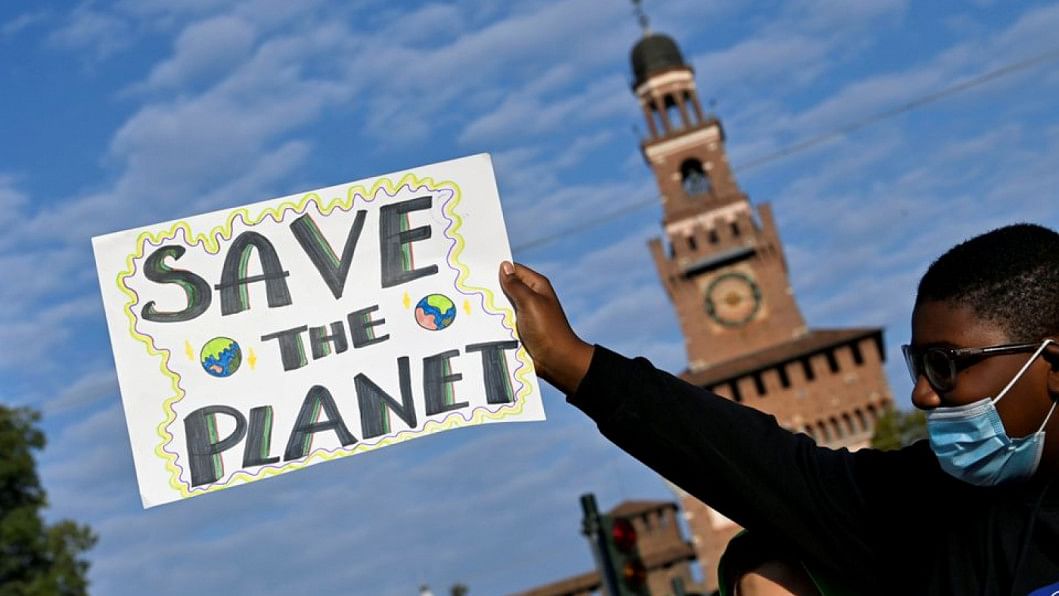Is the US equipped to be a global climate change leader?

The United States has been historically the biggest emitter of greenhouse gases (GHGs), which has been a major driver of human-induced climate change. And even though China has recently overtaken the US as the biggest emitter at present, the US remains the biggest single cause of the problem since the start of the industrial revolution nearly two centuries ago. Thus, any measure to tackle human-induced climate change at the global level will only succeed if the US plays a leading role.
Let me give a glimpse into the ups and downs in the US' involvement in sometimes being a leader and sometimes a laggard when it comes to climate solutions, and where it stands today.
The global efforts to combat climate change began in the 90s when the United Nations Framework Convention on Climate Change (UNFCCC ) was formed, which was a major achievement. All the countries in the world agreed on a global treaty that ensured that they would take actions to reduce their GHG emissions at the national level. The US, under President George HW Bush, played a positive role at that time and was one of the first countries to ratify the UNFCCC.
Unfortunately, even though all the countries agreed to voluntarily reduce their respective emissions, very few did so in practice. Hence, it was agreed that binding targets would be developed for each country under a protocol to the UNFCCC.
A few years later, at the third Conference of Parties (COP3) of the UNFCCC held in Kyoto, Japan, the US under President Bill Clinton again played a positive role in agreeing to the Kyoto Protocol, whereby the developed countries agreed to take on legally binding targets to reduce their emissions, while developing countries were exempted for a period. The US delegation to Kyoto was led by then Vice-President Al Gore, and they agreed to accept a target to reduce their emissions.
However, soon afterwards, the Democratic Party lost the presidential elections, and George W Bush became the president. As soon as he entered the White House, he decided to withdraw the US from the Kyoto Protocol. He tried very hard to get other countries to join him, but was only able to convince Australia under Prime Minister John Howard. The reason given by the Republican Party then was that the Kyoto Protocol was unfair to the US as it did not require China to take on a target to reduce its emissions. This argument has always been the view of the Republican Party and has contributed to the periodic withdrawal of the US from joint global actions.
Unfortunately, the US withdrawal made the Kyoto Protocol less effective, even though it continued without the US for a while.
A few years later, under President Barack Obama, the US played a strong role in achieving the Paris Agreement in 2015. This was by far the pinnacle of US' proactive global leadership on tackling climate change. A very significant aspect of the Paris Agreement was that the US and China, the two biggest emitters, both joined forces to achieve the agreement.
However, when the Republicans won the presidential elections again in 2016, President Donald Trump withdrew the US from the Paris Agreement. This time, he could not get even a single country to join him.
A very important difference between the US withdrawal from the Kyoto Protocol and the withdrawal from the Paris Agreement was that this time the rest of the world went ahead without the US and were able to continue to implement the agreement without the US.
Then, a few years later, the Republican party again lost to the Democrats, and Joe Biden became the president. He proclaimed that the US would once again become a global leader in tackling climate change, and he appointed John Kerry, who was one of the architects of the Paris Agreement under President Obama, as his climate envoy.
However, while the US under President Biden and with John Kerry as the global champion has done a lot of talking – most recently at COP26 in Glasgow, Scotland – the US has not been able to pass the necessary legislation to take the actions that it had agreed to take under the Paris Agreement. This was due to resistance from the Republican Party, as well as some Democrat senators.
The good news is that, in the last few days, the Democratic Party has managed to pass the country's largest climate change law, which will enable the US to once again have a valid claim to be a global leader in tackling climate change.
The US' new climate change legislation focuses entirely on domestic actions to reduce GHG emissions, which is indeed a good thing, but it does not address the country's obligation to provide finance to the developing countries, which it had agreed to as well. One could hope that the successful adoption of the domestic climate change bill would clear the way for the US to also fulfil its pledge to provide the funds it promised before the global climate change conference (COP27) due in November.
Dr Saleemul Huq is director of the International Centre for Climate Change and Development (ICCCAD) at Independent University, Bangladesh (IUB).

 For all latest news, follow The Daily Star's Google News channel.
For all latest news, follow The Daily Star's Google News channel. 







Comments